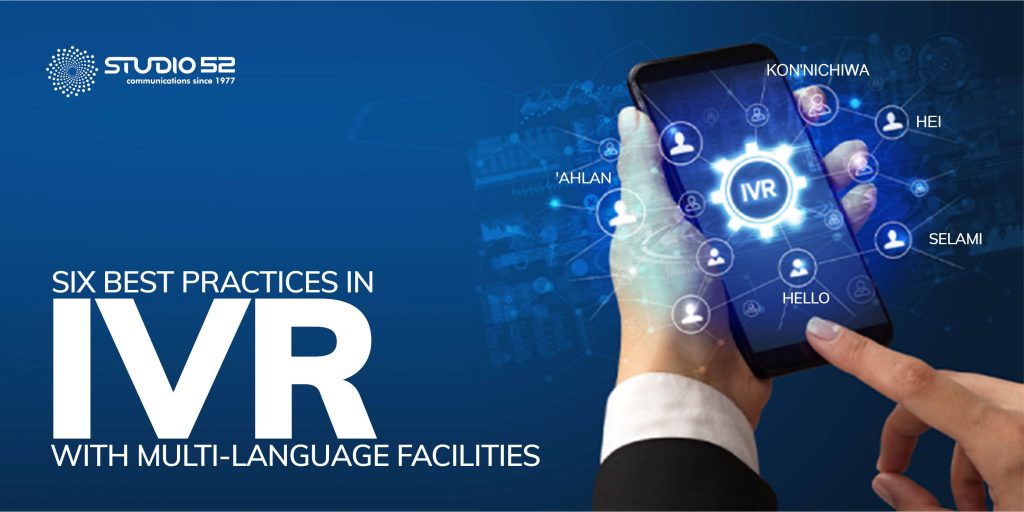Studio52 encourages these time tested industry best practices for IVRs with multi-language options:
- Native Speakers
Even the best-trained voice talent has trouble sounding credible in a second foreign language. It would be best if you employed native speakers for all voice prompts and IVR language. They are aware of cultural sensibilities and can help your organisation prevent embarrassing mistakes that harm your corporate reputation irreparably.
- Standard Script
We recommend a standard script in a spreadsheet format for each language required, and that format maximises the chances of highly accurate output throughout the editing, formatting and recording processes. There is the unification of the communication and distribution processes across multiple voice talents.
- Use professional Voiceover Talent, not internal resources.
Professional voice over artists have the talent to pronounce all words correctly and maintain a high-quality level. They keep a consistent pace, style, energy level and pronunciation throughout the life of the IVR system. You can always risk a poor user experience with internal resources if they lack the required training to provide quality voiceovers. Lastly, be careful that a professional and credible services firm vets the voice talent.
- Ask for multiple demos first.
The best thing about professional voiceover firms is that they have multiple voice talents for a single language. Once you evaluate multiple demos first, it ensures that your choice reflects your brand’s style, level of energy and formality. You can check for subliminal perception after listening to multiple demos.
Also Read: Voice-over Artists: Who Are The People Working Behind The Scenes
- Bilingual talents add a lot of variety.
Bilingual talents are skillful and can speak two languages without a noticeable change in accent. They can employ the same style of intonation and pace across languages. The coaching and feedback you provided will be acted on and is administratively smoother. In the event of script changes, clarifications of pronunciations, it is administratively softer to work with bilingual talents. A bilingual talent is more likely to identify translation errors and grammatical hiccups in a script.
- Validation of hard-to-pronounce words with internal users
We always recommend reviewing with internal users before sending a voiceover script to a professional services firm. Translators may not have the requisite knowledge of industry-specific phrases and terms. Besides, some firms work with a dedicated phone line for recording pronunciations. Native speakers can call into the specified extension at least twice to register suspect phrases.
If you want professional voice over services with the best quality and multi-language capabilities,





